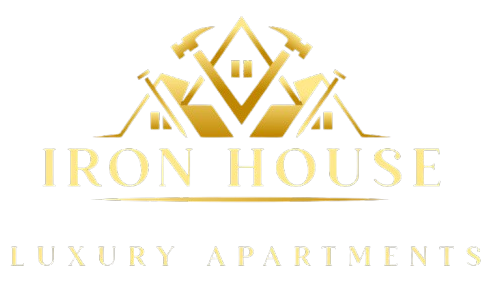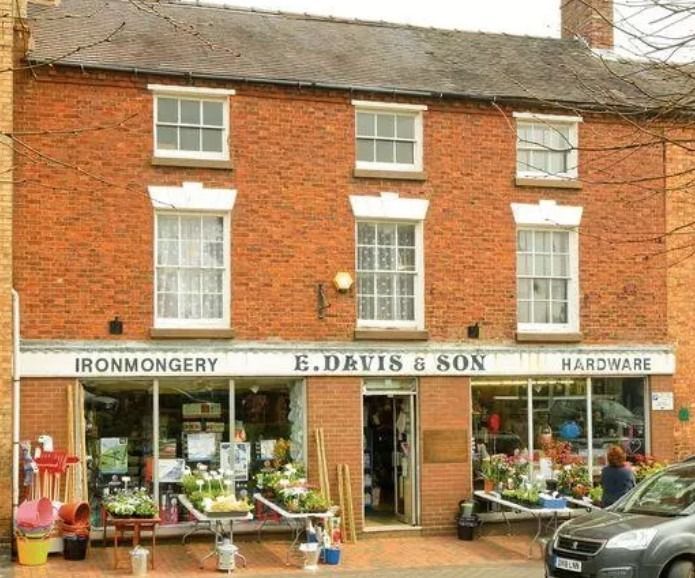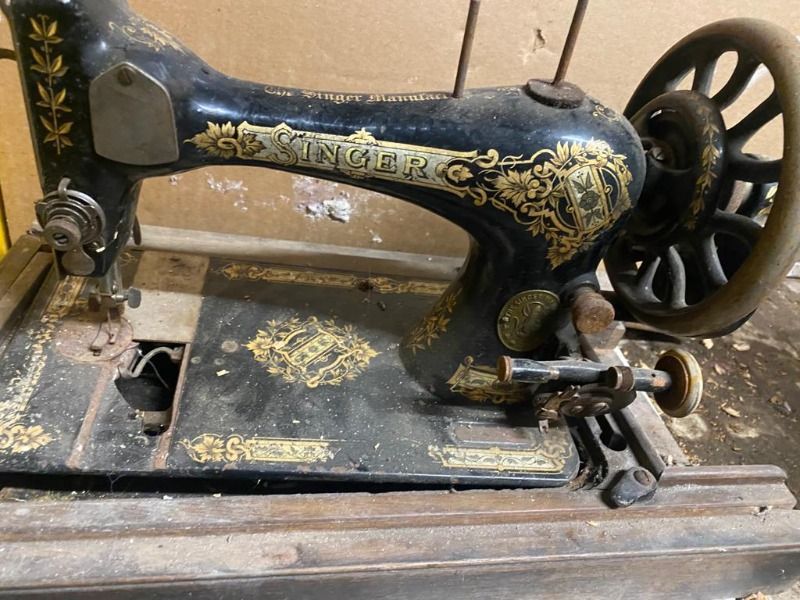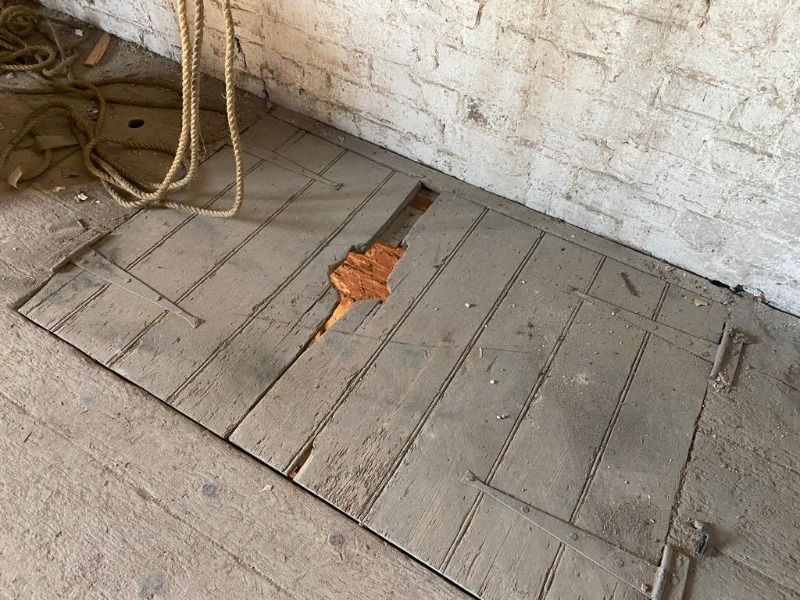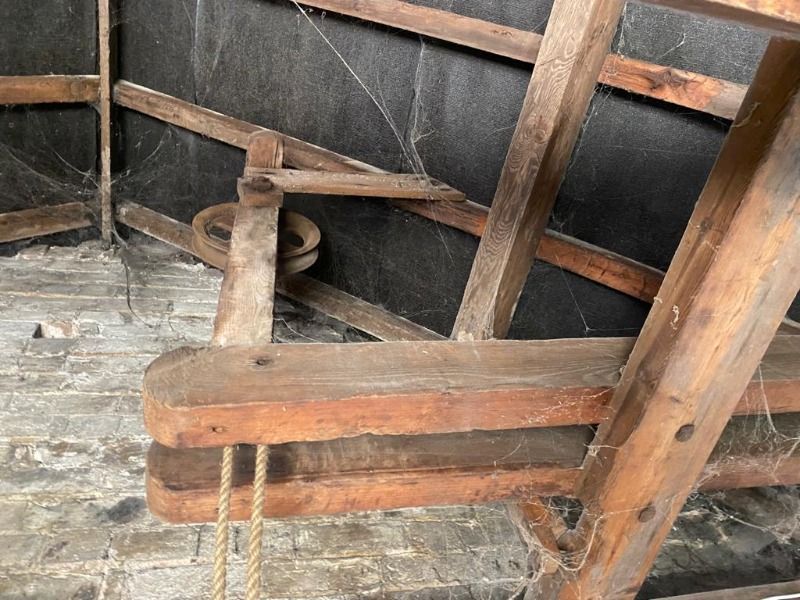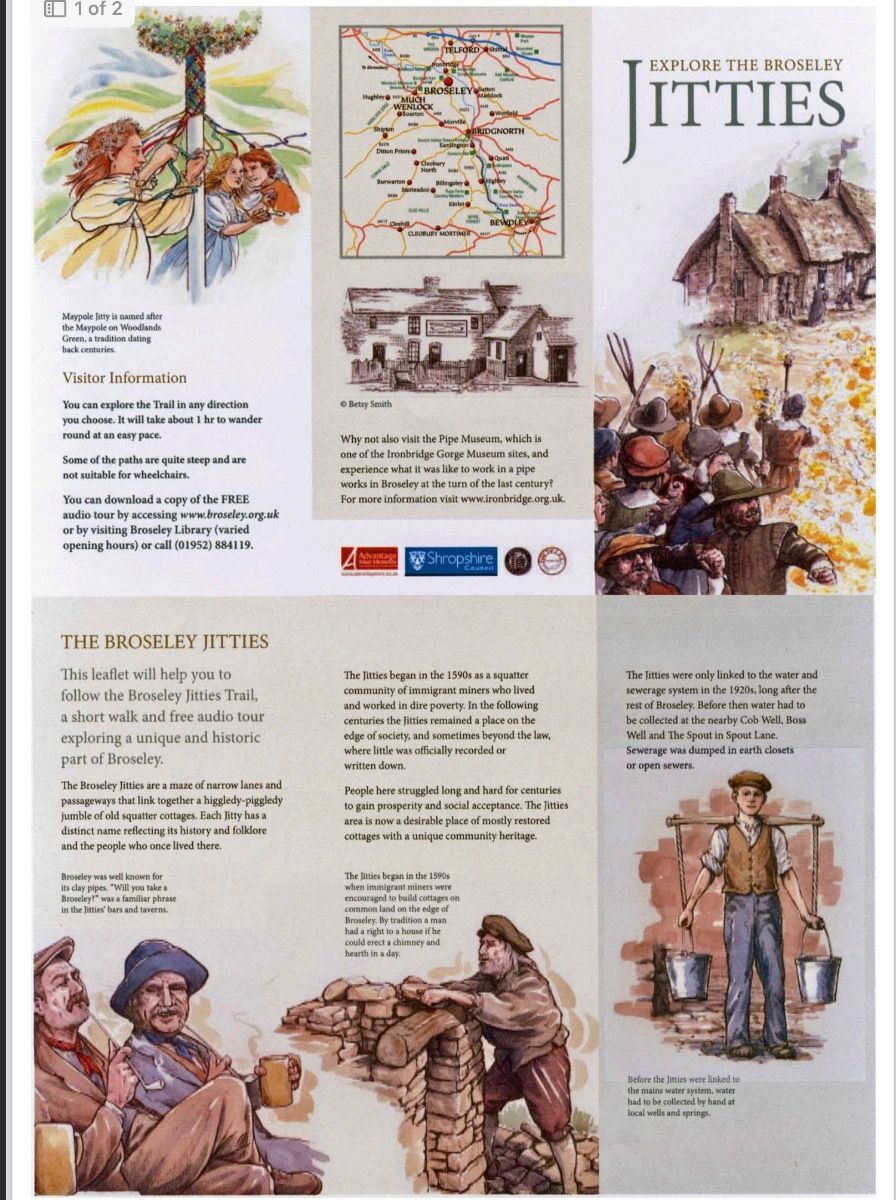History of the buildings
Building the Future on a Foundation of the Past
The Broseley Hardware Store & The Iron House Apartments have been created by Peter & Kieran Gwilt on the site of the historic "E Davis & Son Ironmongers."
E Davis & Son was a very popular ironmongers’ store in Broseley’s High Street and in 2017 it celebrated its 110th anniversary! Peter and Kieran paid their respects to the previous residents by naming two of the apartments after them! Please do come and stay in James' Place or Hillary's Hideaway or in the beautiful Garden View, Clenchacre Mews or Hurdley Heights!
This page will give you some history of the building & help connect us to the past.
The ironmongery shop was originally owned and run by an Edwin Davis, it was then passed on to his son Walter. Walter, however, had no children and on his death it was left to the person who had been helping him run it – James William Hurdley. It is his son, also James, who ran the store with his family.
An article written by Paul Luter and published in the Broseley Local History Society Newletter (August 2007) explores the history of Davis family. In trying to find out more about the Davis family, James asked Walter’s nephew Ken, who still lived in Broseley, for some background information. Here is what Ken had to say....
"My great great grandfather Francis Davis came from Myddle in North Shropshire to work in the Ironbridge Gorge. There he married a widow called Sarah by whom he had several children, two of whom were named George and Francis. George and Francis bought a brick and tile works down Rough Lane. It was very successful, many bricks being shipped down the Severn to build half of Bristol. Their products were also used for buildings in this area among them the Instone Buildings (1900), Broseley School, the Blue School in Ironbridge, my (Ken’s) house in Queen Street and the floor tiles in Broseley Church.
Their success was due to the fact that they discovered how to make very hard brick. To keep the formula secret, however, they made the mix themselves during the night and never passed the secret on. My father, Charlie, said that had they done so the family would have made a fortune!
George lived in the right hand house opposite the church and Francis lived in Raddle Hall. Their clay pit was in the church fields between the church and the cemetery. At that time the bottom end of Broseley was frequently flooded in the winter and George thought that if he could crack the underlying clay bed this would solve the problem. So he and Francis set to and packed the pit with dynamite. The resultant explosion nearly blew up half of Broseley. It also cracked the bed and solved the problem!
After a terrible row, the brothers split up and Francis left, first taking over the Station Hotel at Ironbridge and then a boarding house in Rhyl, where he eventually died. His body was brought home and buried in the churchyard. George carried on the business but it gradually declined and folded. He eventually retired and on his death was also buried in the churchyard.
George’s children were George, William and Edwin. George emigrated to South Africa but Will went to Ruabon and took over a brick and tile works there. He was very clever and successful in making unusual yellow pots. Recent tests have shown that the yellow clay colouring was caused by traces of a uranium ore and the pots are slightly radioactive (my cousin, Matt, still has one). William had a son, Vincent, who worked at Maws before moving up to Ruabon to join his father. He too was very successful and eventually retired as a millionaire. A few years ago, as a member of the family, I was officially invited to the opening of a section of Ruabon museum which was devoted to the work of these two. The third son, Edwin, bought a grocer’s shop, now the newsagents, and an ironmongers next door but one – now run by James Hurdley. He had five children, Edith, Lily, Maggie, Walter who married Estelle Martin, and Pattie. He also took over the (Old) Post Office which Estelle managed. He eventually sold the grocery shop to Billy Instone and concentrated on the ironmongery. I have always thought how fortunate it was that when his son Walter took over the business, he took on your (James Hurdley’s) father to help him out. For any excuse and Walter was off to attend a concert, play the piano or go to Ludlow Races with my father!
Francis, my great grandfather, had a son, Matthew, whom he apprenticed to a butcher called Barney Wilcox in Ironbridge. After serving out this apprenticeship, Matthew married June Hayward and emigrated to Argentina at the age of 22. There he set up a business selling meat to the ships but having lost four children he had had enough and they came back to Broseley. He bought a set of buildings in King Street and set up as a butcher. Matthew was tile mad and completely tiled the shop, parts of the house and the slaughter house next door from top to bottom. The shop is unique and has featured on television. It was there that my father, Charlie, was born. He was one of sixteen children and I am the only direct male descendant to be left in Broseley. " Ken Davis
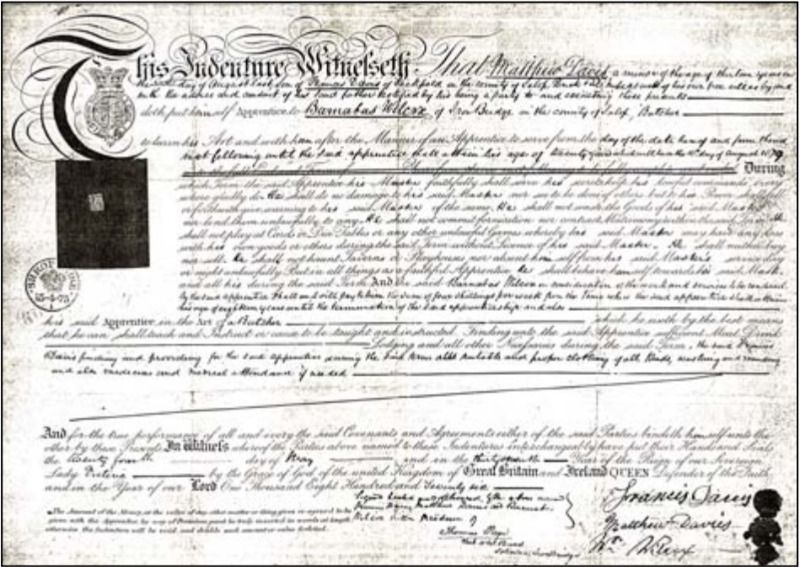
This is a copy of an indenture document dated 1875
The article goes on to explain....
This copy of an indenture document dated 1875 is courtesy of Ken Davis and shows Matthew Davis being apprenticed to Barney Wilcox, a butcher in Ironbridge. Matthew was 13 at the time. The document reads in part, “He shall not waste the Goods of his said Master, nor lend them unlawfully
to any. He shall not commit fornication nor contract Matrimony within the said Term. He shall not play at Cards or Dice Tables or any other
unlawful Games whereby his said Master may have any loss with his own goods or others during the said Term without Licence of his said Master.
He shall neither buy nor sell. He shall not haunt Taverns or Playhouses nor absent himself from his said Master’s service day or night unlawfully....
And the said Barnabas Wilcox in consideration of the work and services to be rendered by the said apprentice shall and will pay to him the sum of
four shillings per week from the time when the said apprentice shall attain his age of eighteen years until the termination of the said apprenticeship....”
The original document, which was signed off by Barnabas Wilcox, is now in the possession of Matthew’s great grandson and was last heard of hanging on the wall of his office in Singapore.
If you would like to read the original article written by Paul Luter please go to this link Newsletter August 2007.
If you would like more information about the Broseley Local History Society please go to this link Broseley Local History Society.
Many treasures and historically interesting items have been discovered during the revamp!
The Jitties
This wooden sign this QR code is carved into is made by Heartwood of Bridgnorth. If you would like more information about Heartwood of Bridgnorth please visit Heartwood of Bridgnorth.
This information is hosted by QRYou. If you would like to know more about this unique and innovative hosting site please contact Jason Scott on jason.n.scott@outlook.com.
Iron House
83 The High Street, Broseley, United Kingdom, TF125ET
Email: enquiries@ironhouse.uk | Tel: 07951530445
All Rights Reserved | P & K Ventures Ltd | Privacy Policy | Website Built By Flip2Digital
